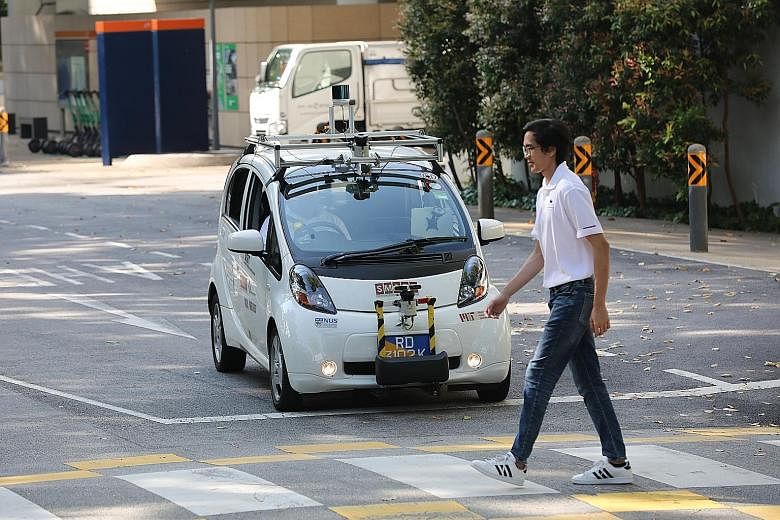Disruptive industries involving technologies such as autonomous vehicles and artificial intelligence (AI) require specialised skills that are in short supply in Singapore, said opposition MP Leon Perera (Aljunied GRC) yesterday.
One way to nurture the growth of such industries, without relying on an unsustainable importation of skilled foreign workers, could be to issue limited-term foreign work passes tied to the training of Singaporean workers, he told Parliament.
Mr Perera, of the Workers' Party (WP), said individuals with the necessary specialised skills could be offered, say, a five-year pass.
In that time, Singaporeans could be trained in the relevant skills and employers would be expected to hire a Singaporean to fill the position when the limited-term pass expires. If there are not enough Singaporeans by that time, "and this is proven, the pass can be extended a little longer", he added.
Mr Perera made the suggestion during the debate on the ministerial statement Deputy Prime Minister and Finance Minister Heng Swee Keat made in Parliament on Oct 5, on Singapore's strategy to emerge stronger after Covid-19.
He also outlined the challenges posed to the Singapore workforce by industry disruptions. While Covid-19 may have slowed the advancement of some disruptions, by delaying new business investments, for instance, the disruptive trends will return as the pandemic recedes.
He warned that many industries that are doing fine now will be at risk in a few years. These include delivery and driving jobs, which will be threatened by autonomous vehicles, as well as certain clerical or service jobs, which could be at risk from AI.
Mr Perera suggested that the Government look into working with employees and stakeholders in industries at risk to get them to anticipate the risks and start planning what to do if and when their industry gets disrupted.
Another WP MP, Associate Professor Jamus Lim (Sengkang GRC), said Singapore must have a "Plan B" if the world continues on its trend of de-globalisation which predates the Covid-19 pandemic.
"Even the typically more resilient work-related migratory flows are under threat as corporations rethink their need for business and conference travel and upend historical cross-border relationships in favour of reshoring previously outsourced business operations and shortening international supply chains."
While Singapore works to revive its air hub and transshipment capabilities, it must also prepare for the possibility the changes could be permanent and the post-Covid-19 world will be more fractured and insular, he said.
These trends are "worrying from the perspective of our banking on a return to connectivity as a key source of economic growth".
He said, among other things, that "we must transition our economy, urgently and decisively, by increasing the contribution of small and medium enterprises to our growth engine".


